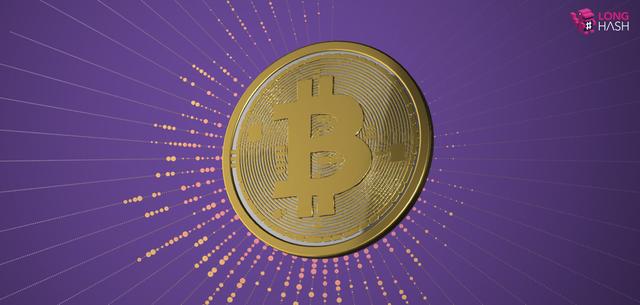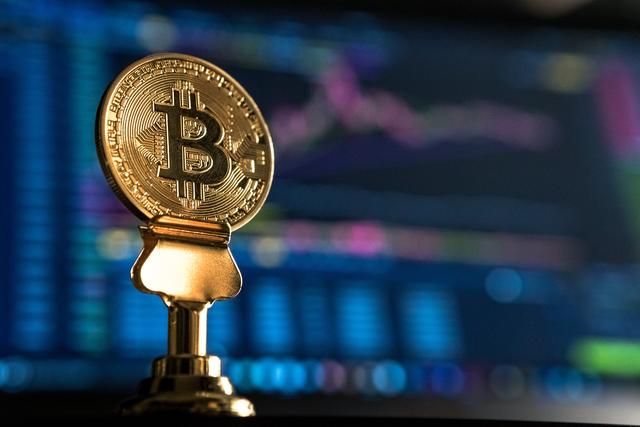Bakkt's opening performance is slow, why are the insiders in the encryption industry still optimistic about it?
Source / LongHash
Editor's Note: The original title is "Why are the insiders of the encryption industry optimistic about Bakkt?"
However, after nearly a year of regulatory setbacks, when Bakkt finally came out on September 23, many people quickly expressed disappointment. During the first trading day, the platform supported by the Intercontinental Exchange (ICE), Starbucks and Microsoft had less than $2 million in transactions. Although its transaction volume has recently increased by 800%, its daily turnover is still less than $2 million at the time of publication. For reference, LongHash found that in September, the average daily trading volume of the ten largest bitcoin spot markets reached $1 billion.
- Viewpoint | Libra on Facebook, why is the voice of support and opposition so strong?
- Can Ethereum go to the high-speed development of centralization finance, can it trigger the next round of blockchain bull market?
- Elite club or decentralized organization? A picture reveals the relationship between members of the Libra Association
Despite the slow start, some insiders in the encryption industry believe that Bakkt's flagship financial instruments have the potential to bring about dramatic changes in the bitcoin market, especially in terms of market participants, liquidity and supply and demand trends.

Attract institutional investors
If you have carefully studied the headlines of the encryption industry over the past two years, you may have noticed that the term "institution" often appears in conjunction with the word "investment." TIE found that in the first half of 2019, the term “institutions” appeared in the Financial Times and CNBC and other mainstream media and trade publications and the bitcoin-related headlines reported a relative frequency index approaching 60%.
But the actual situation is different. In the past 11 years since the introduction of Bitcoin, its market growth and adoption have been driven by retail investors for most of the time. In the investment field, the institutional side still belongs to the undeveloped stakeholders, which is where most of the funds are located.
The pace of institutions entering the bitcoin market is slow. Industry upstart BlockFi reported earlier this month that by 2019, the so-called "encryption virus" only "infected 1.3% of the overall private fund."
Bakkt is here. In response to LongHash's question, industry analysts said they believe Bakkt has given the cryptocurrency market a huge influence in the institutional circle.

Texas West Capital's cryptocurrency trader, Twitter's well-known analyst Scott Melker, told us that "Bakkt allows institutional investors to securely access BTC's exposure" and therefore "may develop very well in the future." Melker's comments are reminiscent of JP Morgan's former executive Tom Lee. Three days after Bakkt's first trading day, Lee wrote on Twitter that the exchange has "the ability to improve the organization's trust in cryptocurrencies."
With the support of tens of millions of funds from the Intercontinental Exchange (a company operating the New York Stock Exchange), Bakkt can bring legitimacy and institutional security to the encryption industry by partnering with global banking giant BNY Mellon. Because when ICE, one of the world's most important financial institutions, uses bitcoin, people will definitely notice.
Bakkt's hosted products are and will be the main source of new trust for cryptocurrencies in the future. As Sasha Fleyshman, a trader at Arca, an encryption investment management company, told LongHash:
“Bakkt doesn't have to be a cold-selling – Bitcoin futures on the Chicago Mercantile Exchange (CME) already offer bitcoin exposure – but the introduction of physical bitcoin's institutional-level hosting solution is a huge added value. In the long run, this may bring them huge differences."
Due to the nature of its futures physical settlement, the Commodity Futures Trading Commission (CFTC) and the New York State Government require Bakkt to create an appropriate hosting system for Bitcoin.
While cryptocurrency hosting is nothing new to this market, Bakkt has raised bitcoin security to another level. The measures mentioned on Bakkt's hosting page include working with BNY Mellon to create an “air gap system stored in a bank-level vault with sophisticated physical security controls”, setting a $125 million insurance policy and distributing private keys. Fragmentation and use of "corporate security features (including the protection of the security features of ICE's dozen exchanges)" to protect customer funds.
Provide liquidity for Bitcoin
PlanB, an anonymous quantitative analyst who quickly became the leading cryptocurrency commentator, told LongHash that Bakkt provided liquidity to the market because “it provides investors with another way to sell their investment, and another export.”
He added that this extra export "may first become a reason for investors to choose to buy. If you are not sure whether you can sell assets at a reasonable market price, I will never buy."
In this sense, Bakkt can create a growing positive feedback loop for market liquidity. Financial institutions began to study bitcoin futures due to stable managed products and increased market liquidity. Liquidity increases with the entry of new participants, and then more institutions are attracted by the expansion of liquidity.
However, it must be pointed out that this positive feedback loop can only be achieved if the institution is actually using Bakkt futures.

Scott Melker tells us that, in the final analysis, Bakkt is just a tool. “Institutions need to have enough interest to use it,” the analyst said, adding that it remains to be seen whether there will be long-term demand for such financial instruments.
Pessimistic people may think that the market will not have long-term demand for Bakkt futures, because the daily trading volume of the exchange has been stagnant at the low million dollar level since its launch in September. They may be correct.
However, Arca's Sasha Fleyshman affirms that “institutions have never been known for their quick action and breaking new ground. It takes a long time for these companies to conduct due diligence and entry.” In other words, it is more reasonable to look at it in a few years. Bakkt succeeds or not, not just a few weeks after going online.
Restoring scarcity
The basic principle of Bitcoin is that its total supply will never exceed 21 million. But is Bitcoin really strictly maintaining this scarcity?
In December 2017, CME became the first regulated exchange in the US to offer bitcoin futures. However, one of the problems it brings is that the bitcoin scarcity that people perceive may be greatly weakened—the “bitcoin” traded on the CME market does not actually exist on the chain. For example, when an investor purchases Bitcoin on Coinbase, they have the right to withdraw the cryptocurrency by withdrawing the currency and transfer the portion of the supply from the market. CME's cash-settled futures do not allow contract holders to withdraw the bitcoins they subscribe to because they are not reflected in the blockchain.
As PlanB said in a "Investor's Podcast" with Preston Pysh in September: "In theory, even if there are no 21 million bitcoins in the chain, you can pass CME. Futures oversold… You will need a lot of cash, but you can do it, especially in the context of the government having the right to mint."
Fleyshman also has these concerns and tells LongHash: "Cash settlement bitcoin futures will undermine one of Bitcoin's main principles – hard cap supply. The ability to acquire bitcoin exposure has caused market manipulation and excessive volatility. Possible."

We will continue to update Blocking; if you have any questions or suggestions, please contact us!
Was this article helpful?
93 out of 132 found this helpful
Related articles
- Token is the window to enter Web3? Get a close look at the commercial microcosm of token economics
- Facebook, Telegram currency blocked: regulatory demise and possible opportunities
- Market Analysis: The market has not stabilized, and the vigilance suddenly "empty"
- CoinMarketCap publishes a cryptocurrency rate page that allows users to compare
- Babbitt column | Libra coin myth: Can you achieve a precise balance?
- BTC short-term trend is weak, is it a dishwashing or a downward trend?
- Classic Rereading | Why is the central bank digital currency a natural extension of current currency trends?






